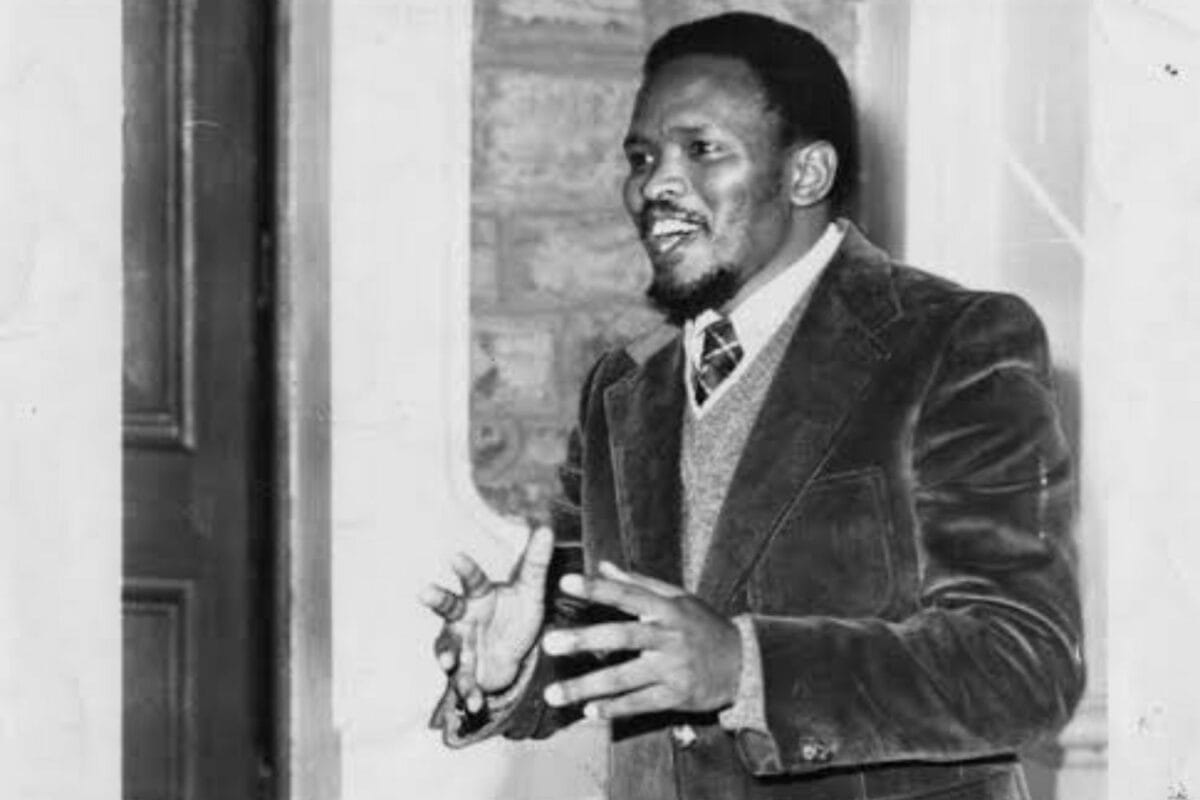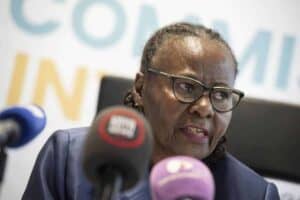The reopening of the Steve Biko inquest comes decades after the apartheid regime’s police officers fabricated accounts of his fatal injuries.

The National Prosecuting Authority (NPA) says it plans to reopen the inquest into the death of anti-apartheid activist Stephen ‘Steve’ Bantu Biko on 12 September.
Biko, the founder and leader of the Black Consciousness Movement (BCM), passed away in 1977 after allegedly being tortured by the then apartheid regime.
Friday, 12 September, will be exactly 48 years since his death.
NPA confirms inquest reopening
The NPA’s Eastern Cape spokesperson Luxolo Tyali said on Wednesday that the decision to reopen the inquest follows the minister of Justice and Constitutional Development’s approval of the National Director of Public Prosecutions’ request.
The request was supported by the legal representatives of the Biko family.
“The main goal of reopening the inquest is to lay before the court evidence that will enable the court to make a finding in terms of section 16(2) (d) of the Inquests Act 58 of 1959, as to whether the death was brought about by any act, or omission, which prima facie involves or amounts, to an offence on the part of any person,” Tyali said.
Circumstances of Biko’s arrest, detention and death
Biko was arrested along with his comrade, Peter Jones, at a roadblock near Grahamstown, now Makhanda, in the Eastern Cape on 18 August 1977.
He was accused of violating apartheid-era banning orders, which restricted his movement to King Williamstown, now Qonce.
Biko was then taken to Walmer Police Station in Port Elizabeth – current Gqeberha – where he was allegedly tortured while shackled with leg irons and kept naked in a cell.
Officers reportedly only sought medical assistance after he had spent 24 days in custody, when it was noted that he was foaming at the mouth.
The anti-apartheid activist was then loaded into the back of a police vehicle unconscious, naked and shackled on 11 September.
NOW READ: ‘If Steve Biko found us in this condition, he would cry’ – Azapo
He was transported to a prison hospital in Pretoria, 1 200km away.
Biko passed away outside the hospital the next day, aged 30.
“The cause of Biko’s death was recorded as extensive brain injury caused by centralisation of blood circulation and intravascular blood coagulation, acute kidney failure and uremia,” Tyali said.
A formal inquest was held in November of the same year.
Apartheid police narrative rejected at TRC
“The version of his captors and interrogators of the notorious police Special Branch (SB) members at that inquest was that he had sustained his injuries when he banged his head against the wall,” Tyali said.
“The presiding officer, Chief Magistrate MJ Prins, accepted the version of the SB members and found that Biko sustained the injuries during a scuffle with the SB members.”
He said the magistrate also exonerated the medical practitioners who treated Biko while in prison.
On 2 February 1978, the then Attorney General of the Eastern Cape declined to prosecute anyone for the death of Biko.
“During the Truth and Reconciliation Commission (TRC) sitting in 1997, former senior SB officers from Gqeberha, Major Harold Snyman, Captain Daniel Petrus Siebert, Captain Jacobus Johannnes Oosthuysen Benecke, Warrant Officer Rubin Marx and Sergeant Gideon Johannes Nieuwoudt applied for amnesty in relation to the death of Biko,” Tyali said.
“Their version was that Biko had attacked one of their colleagues with a chair after he sat down without asking for permission. In the ensuing scuffle to restrain him, Biko hit his head against the wall, they claimed.”
Towards justice and closure
The officers admitted that they colluded and fabricated their versions, submitting false affidavits during the initial investigation into Biko’s death.
All five of them were refused amnesty because their evidence was contradictory and disclosed no political motive.
“The NPA and its partners will continue their efforts to address the atrocities of the past and assist in providing closure to the Biko family and society at large,” Tyali said.
NOW READ: Inquiry into TRC cases invites public to prehearing meeting






